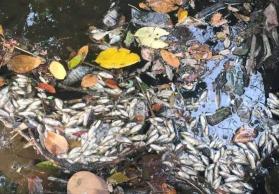Vatican condemns writings of Jesuit priest in El Salvador
Vatican condemns writings of Jesuit priest in El Salvador
Cites teaching discrepancies
For years, Pope Benedict XVI had expressed displeasure with the Rev. Jon Sobrino and his embrace of liberation theology.
By Tracy Wilkinson, Los Angeles Times | March 15, 2007
ROME -- When a Salvadoran Army death squad dragged six Jesuit priests from their beds in the middle of a November night in 1989, then dumped their bloodied bodies on the lawn, the Rev. Jon Sobrino was 11,000 miles away delivering a lecture.
His work with the country's campesinos and his strong advocacy of liberation theology, a doctrine sometimes tinged with Marxist thinking, made him a preferred target of El Salvador's reactionary forces.
Sobrino's views also invited critical scrutiny from the Vatican, especially from former cardinal Joseph Ratzinger, the enforcer of church dogma and longtime foe of liberation theology and other nontraditional currents, who two years ago became Pope Benedict XVI.
Yesterday, after years of review, the Vatican formally condemned elements of Sobrino's most important writings as "erroneous or dangerous," adding that they "contain notable discrepancies with the faith of the Church."
Sobrino, who is still based in San Salvador, failed to give proper emphasis to the divinity of Jesus, a core belief in Christianity, in two of his most widely disseminated books, the Vatican said in a dense 14-page "notification" released yesterday and translated into four languages.
The decision dismayed many of Sobrino's supporters, who rejected any suggestion he harbored heretical ideas.
The ruling by the Vatican's Congregation for the Doctrine of the Faith stopped short of imposing sanctions, such as barring Sobrino from publishing or teaching at a Catholic institution. However, church officials said the conservative archbishop of San Salvador, Fernando Saenz Lacalle, had the prerogative to impose punishment.
"As for eventual sanctions, the situation is open," the Rev. Federico Lombardi, Vatican spokesman, said in an e-mail.
At San Salvador's University of Central America, where Sobrino taught for decades until illness recently sidelined him, the censured priest declined requests for an interview. He said through associates that he preferred to remain "prudent."
Sobrino previously has said he considered the work of the committee inspecting his writings to be unfair and to have misrepresented his theological thinking, which he defends as firmly grounded in Roman Catholicism.
Accepting its censure, Sobrino said, would lend credence to what he described as a persecution of liberation theology that dates to the 1970s.
Those comments were contained in a letter Sobrino wrote in December to the head of the Jesuit order in Rome, the Rev. Peter Hans Kolvenbach. Portions were published yesterday by the National Catholic Reporter.
The decision to act against one of the last major champions of liberation theology may be connected with Pope Benedict's upcoming trip to Brazil in May, when he will preside over an extraordinary meeting of Latin America's leading clergy.
It was the first public censure of a theologian's work under Benedict.
At least as far back as the early 1980s, the current pope disapproved of Sobrino and his embrace of liberation theology, a religious approach that emphasizes political activism in the fight for justice for the poor.
Reports that the censure of Sobrino was imminent had been circulating for about a week, provoking angst among the Basque Jesuit's defenders and admirers.
"He's a theological giant," said the Rev. James Martin, an American Jesuit writer and author of the new book "My Life With the Saints."
"Father Sobrino is one of my heroes, and he's a hero for any Jesuit who has sought to find Christ among the poor."
Martin, like several other Jesuits contacted, said he found Sobrino's writings to be fundamental to his ministry, especially among refugees and the disenfranchised.
"Any time a Jesuit is critiqued by the Vatican for his work is a time of sadness for any other Jesuit," Martin said.
The Rev. Jose de Vera, spokesman for the Jesuit headquarters in Rome, said he believed Sobrino was prepared for the committee's finding, having endured criticism for many years.
De Vera said Sobrino was confident that his theology was sound, if untraditional. He cited five theologians who signed off on the two books in question, judging them free of doctrinal error.
The "notification" was signed by Cardinal William Levada, the former archbishop of San Francisco who took over as head of the Congregation for the Doctrine of the Faith when Benedict became pope.
In it, the faithful are alerted to "grave deficiencies" in two of Sobrino's works: "Jesus the Liberator: A Historical-Theological Reading of Jesus of Nazareth" and "Christ the Liberator: A View From the Victims."
Among other elements, the critique appreciates Sobrino's concern for the poor but faults him for placing too much emphasis on the human rather than the divine nature of Jesus, and for minimizing his death as the way to salvation.
"A number of Father Sobrino's affirmations tend to diminish the breadth of the New Testament, passages of which affirm that Jesus is God," the report said.

 "I am a CISPES supporter because continuing to fight for social justice and a more people-centered country means continuing the dream and sacrifice of thousands of my fellow Salvadorans who died for that vision.” - Padre Carlos, New York City
"I am a CISPES supporter because continuing to fight for social justice and a more people-centered country means continuing the dream and sacrifice of thousands of my fellow Salvadorans who died for that vision.” - Padre Carlos, New York City

